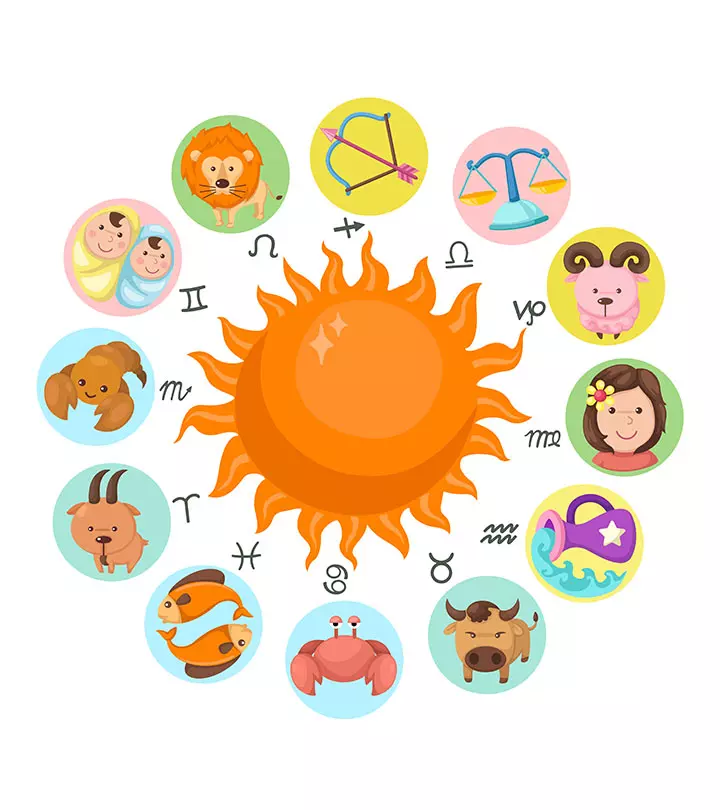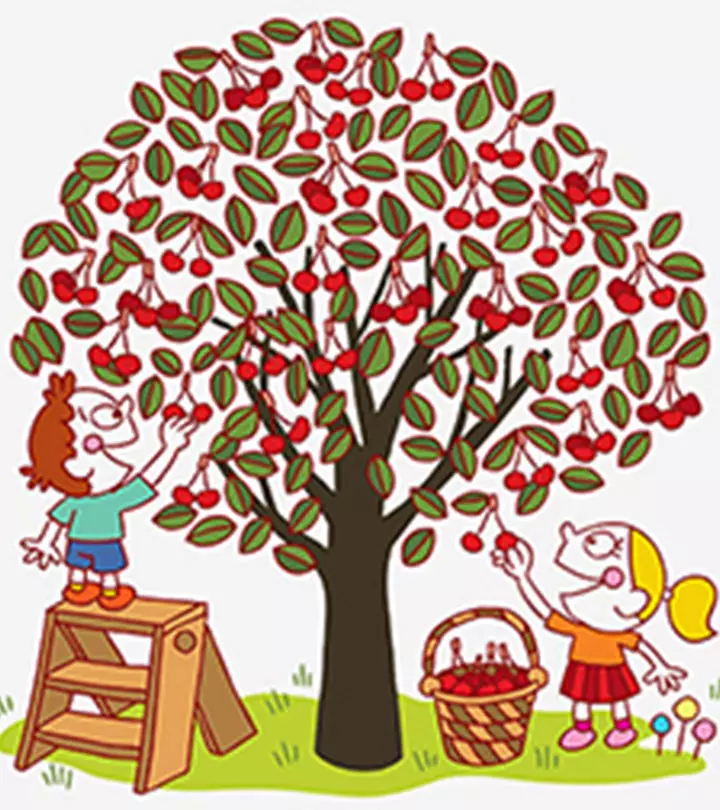
Image: iStock
A well-fed child is a happy child. A balanced diet is essential to support children’s cognitive and physical development. In many families, the mother is the one making the decisions about what food to buy, prepare and put on the table. This is indicative of the pivotal role a mother plays in influencing her child’s nutritional needs. The level of awareness of health in a mother will have a direct impact on the child’s eating habits. A well-educated mother will be able to put better efforts at choosing the correct dietary habits and ensure timely eating habits. Recent studies have shown that a mother’s level of awareness and educational background can have a remarkable impact on the child’s health and overall well-being (1).
1. What Does Research Suggest About A Mother’s Education And Child Nutrition?

Image: IStock
Child health is a key human development indicator. In a study that investigated the connection between child nutrition and mother’s educational levels, it has been found that undernutrition in children is linked to a lower level of mother’s education (1). When a child’s nutritional status improves, it’s good news for their survival rates and overall development of the community and nation (2).
Child nutrition, even before birth, is influenced by a mother’s good health. As suggested by research, how a mother takes care of her own nutritional needs during conception, pregnancy, and post-childbirth demonstrates the child’s overall health condition (3), (4), (5).
2. Why Is Good Nutrition Important For Children?

Image: Shutterstock
Accessibility and affordability of healthy foods are factors that contribute to a child’s diet. By the time your child turns three, significant wiring has occurred, which maps their overall well-being. So, between infancy and toddlerhood, a solid foundation of brain networks and circuits has already been established (6).
What your child consumes in the early years will impact their overall brain development (7). For toddlers, young kids, and teenagers, nutritious food aids in their active growth and development, further affecting their academic and social performance. As proper nutrition is the key to good health during adolescence and adulthood, meeting your child’s nutritional needs is essential so that they grow to their fullest potential.
3. What Are The Consequences Of Nutritional Deficiencies?

Image: Shutterstock
Poorly nourished children face physical and mental difficulties when growing up. A developing brain demands food packed with proteins, fats, zinc, iron, copper, folate, selenium, iodine, Vitamin A, and energy. Any nutrition deficiency or insufficiency will lead to severe consequences on the brain’s degree of plasticity. For example, a protein-energy deficient diet may affect the hippocampus and cortex in the brain, which impacts learning and memory. Iron deficiency can lead to anemia, delayed growth, and a higher susceptibility to infections in children (8). The way your child eats will thus decide their optimal growth and the risks of diseases they may be susceptible to later in life.
Children who consume a healthy diet have higher problem-solving abilities, verbal fluency, creativity, recall, and memory. On the other hand, inadequate nutrition can cause poor health issues like stunted growth, menstrual irregularities, diarrhea, pneumonia, measles, weaker bones, heart diseases, diabetes, and increased injuries (9).
When the brain is deprived of good-quality nutrition, it impacts the production of serotonin. Serotonin is a neurotransmitter that helps regulate sleep, appetite, digestion, and overall well-being (10). Additionally, studies in nutritional psychiatry have proved that the food you consume can impact your mood swings too (11). Research has confirmed that children consuming inadequate proportions or low-quality foods are prone to mood disorders such as depression (11). This further necessitates a constant supply of nutritious foods for adequate functioning and disease prevention in their developmental years and after.
4. How Does An Educated Mother Influence Her Child’s Nutrition?

Image: IStock
The child starts drawing nourishment from the mother even before birth (12). So, a mother’s knowledge of what constitutes a healthy diet can significantly help form good eating habits, thereby providing a higher quality of life to the child. Children absorb knowledge directly through observation. As primary caregivers, mothers generally spend the longest time with children. Their involvement in imparting nutritional knowledge is crucial for the child, setting the child’s dietary choices later on in life.
So, when you proactively teach your child what a healthy and sustainable lifestyle means for their physical and emotional well-being, your child will learn.
Here are a few important ways in which an educated mother influences her child’s nutritional needs:
1. Nutritional Education Of The Child

Image: IStock
What a child eats and how much will determine whether their nutritional needs are met. An educated mother can promote healthier food choices, dietary knowledge, understand the child’s moods, and improve personal interaction while feeding the child. Feeding times are also periods where learning and exchange of affection happen (9). So, conscious parenting by a mother while taking care of the child’s nutrition can help form a positive association and a healthier bond with the child.
You can make intelligent choices that create positive experiences when selecting foods as an educated mother, especially if your child is a picky or fussy eater. When you understand the nutritional value of certain foods, by actively reading the labels and evaluating the serving sizes, you can make better choices of what goes into the child’s mouth.
2. Make Informed Choices And Seek Help

Image: Shutterstock
Well-balanced eating habits can develop when children are taught about nutrition early on by their primary caregivers, especially the mother. A mother who is aware can help the child in the following ways:
- Experiment with different food combinations and textures
- Encourage and ensure the child is happy when they eat
- Recognize signs of hunger
- Keep track of changes in eating patterns
- Make adjustments and seek help when unusual behaviour is observed
So, in the early growing years, a mother’s sensitivity, knowledge, and responsiveness will meet the child’s adequate nutritional needs.
5. Improved Economic Status In Adult Life

Image: Shutterstock
Good nutrition along with good habits ensure healthy growth in children. Children with parents with good levels of awareness of nutrition and well-being will show vast improvements in their future health, academic as well as economic success. As the child’s nutritional condition impacts their brain development, it directly affects their educational achievements. A healthy child will perform better in all aspects of life. This can have critical outcomes in their future career and financial successes in adult life. So, following a healthy lifestyle is not just crucial for the current health status of the child but also the upcoming lifestyle choices.
Education can change lives. This holds true for mothers as well. A mother’s education can make a world of difference to her children’s lives. Considering the major influence a mother has on her child’s health, it is important that they increase their awareness and actively promote healthier food choices in their child. What has been your experience in ensuring your child gets nutritious food and stays fit? Do share your stories with us in the comments section below!
References
- The role of mother’s education in the nutritional status of children in Serbia
https://www.cambridge.org/core/journals/public-health-nutrition/article/role-of-mothers-education-in-the-nutritional-status-of-children-in-serbia/9C49946E28FDCE28B196D7D739393BFE - The Effect of Maternal Education on Child Nutritional Status in the Democratic Republic of Congo
https://iussp2009.princeton.edu/papers/92718 - Prenatal nutrition: a critical window of opportunity for mother and child
https://pubmed.ncbi.nlm.nih.gov/19072465/ - Breastfeeding Nutrition
https://americanpregnancy.org/healthy-pregnancy/breastfeeding/nutrition-during-breastfeeding/#:~:text=Calcium%20%C3%A2%C2%80%C2%93%20you%20and%20your%20baby%20need%20calcium - Nutrition During Pregnancy
https://www.hopkinsmedicine.org/health/wellness-and-prevention/nutrition-during-pregnancy - Early Years Brain Development
https://earlychildhood.qld.gov.au/early-years/developmental-milestones/early-years-brain-development - Early Childhood Nutrition
https://www.unicef.org/nutrition/early-childhood-nutrition - Nutrition and the developing brain: nutrient priorities and measurement
https://academic.oup.com/ajcn/article/85/2/614S/4649636 - Infant And Young Child Feeding
https://nhm.gov.in/MAA/One_Day_Sensitization_Module/One_Day_Sensitization_Module_English_lowres.pdf - Physiology Serotonin
https://www.ncbi.nlm.nih.gov/books/NBK545168/ - Nutritional psychiatry: Your brain on food
https://www.health.harvard.edu/blog/nutritional-psychiatry-your-brain-on-food-201511168626 - You Are What You Eat…and Also What Your Mother Ate
https://sites.harvard.edu/sitn//flash/2009/issue57/
Community Experiences
Join the conversation and become a part of our nurturing community! Share your stories, experiences, and insights to connect with fellow parents.












